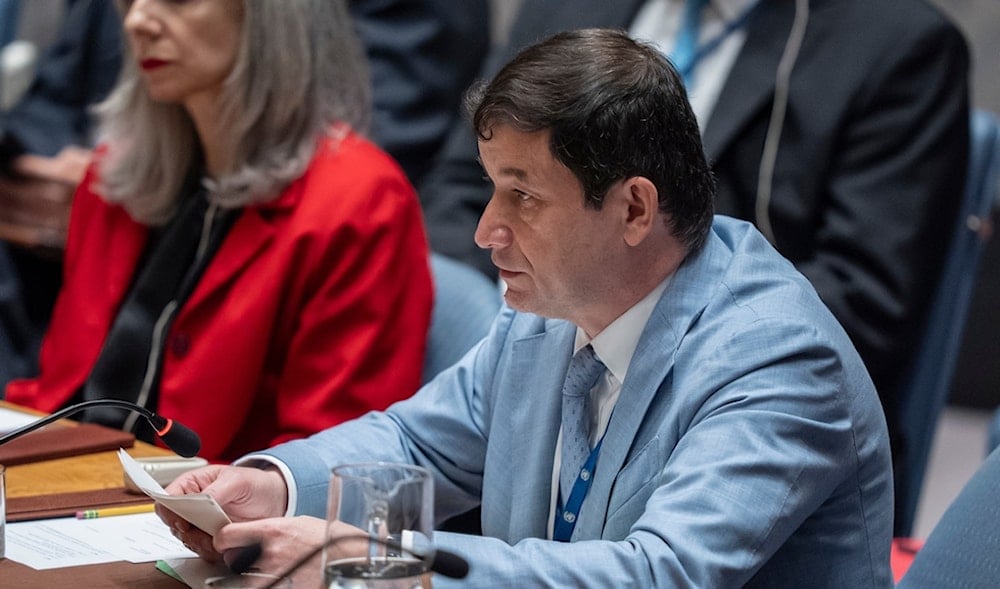UN rejects China-Russia push to delay snapback sanctions on Iran
Russia and China failed to delay the reimposition of UN sanctions on Iran as the Security Council voted down their resolution.
-

Russia's First Deputy Permanent Representative to the United Nations, Dmitry Polyanskiy, speaks during a Security Council meeting at the United Nations headquarters, Tuesday, Sept. 23, 2025. (AP)
A joint push by Russia and China to postpone the imposition of United Nations sanctions on Iran failed on Friday at the UN Security Council, with only four countries voting in favor of their draft resolution.
Nine members voted against, while two abstained. As a result, all UN sanctions on Iran are set to be reimposed at 8 p.m. EDT on Saturday, following unfounded claims by France, Germany, and Britain that Tehran violated the 2015 nuclear deal.
Russia, China warn of escalation
Russia’s deputy UN envoy said Iran had done everything possible to accommodate the Europeans and the US, but Western powers had made “no compromises.” He warned that reimposing sanctions could have “very adverse consequences” and risk fueling further escalation in the Middle East.
China’s deputy envoy similarly stressed that Iran had repeatedly sent “positive signals,” affirming that delaying the sanctions would have kept diplomatic channels open.
What European envoys claimed
Meanwhile, France’s UN envoy said European powers had multiplied their efforts to reach a solution, but claimed Iran “did not produce any specific gestures” and preferred to postpone decisions. However, he added that sanctions would not mean the end of diplomacy with Tehran.
The UK’s envoy confirmed that sanctions will be reimposed this weekend. Meanwhile, Washington and European states claim that Iran has failed to uphold the terms of the 2015 agreement, which was intended to prevent it from developing nuclear weapons, which Tehran had repeatedly stressed it does not seek.
Sanctions mean zero IAEA cooperation
Iran’s Deputy Foreign Minister for Human Rights Affairs, Kazem Gharibabadi, warned on Wednesday that Tehran will cancel its agreement with the International Atomic Energy Agency (IAEA) if sanctions are reinstated.
Speaking to local media, Gharibabadi said Iran has made “strenuous efforts over the past weeks to revive the diplomatic track,” but accused Western countries of “working to undermine these efforts.”
Meanwhile, Iran’s Supreme National Security Council Secretary Ali Larijani said on Iranian television that Western states had previously assured Tehran they would not activate the snapback mechanism if an agreement was reached with the IAEA to reset relations.
With the reimposition of sanctions, the IAEA now risks a complete halt of cooperation, as Iran has consistently warned.
Read more: Iran exposes Israeli nuclear projects in major security breach

 3 Min Read
3 Min Read








